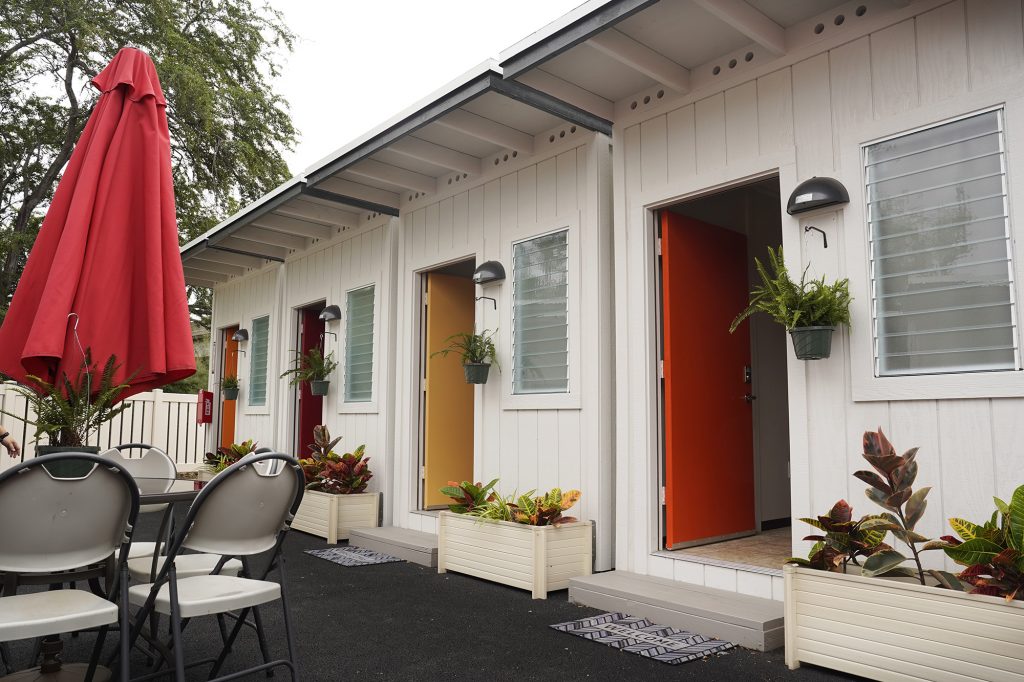Homelessness has been a crisis in Hawaiʻi for decades. We have the highest per-capita rate in the country, just above Washington, D.C.
That’s why I noticed the Trump administration’s recent executive order, “Ending Crime and Disorder on America’s Streets.” Signed July 24, it calls for more involuntary civil commitments, more encampment clearances, and a shift away from Housing First.
Some might call that approach cruel. But it’s more challenging to ask if Hawaiʻi’s own policies, are really much different once you look past the surface.
We all want safer streets, but how we achieve that goal matters. The idea of putting order first and everything else later might sound simple, but it’s a dangerous way to make policy.
This isn’t just something that happens in red states. Honolulu already has its own version: sit-lie bans, stored property and nuisance ordinances, and park closures. These rules add up to sleep bans.
The ACLU of Hawaiʻi has documented what happens when they’re enforced: people lose their belongings, face growing fines, get arrest warrants, and experience trauma. Most importantly, these measures don’t work. Only 11% of people surveyed said they were more likely to seek shelter after a sweep.
The courts have tried to draw lines. Hawaiʻi’s Supreme Court ruled that Maui County went too far and violated basic due process in a sweep in in 2021. But just months later, the U.S. Supreme Court decided that anti-camping laws don’t violate the Eighth Amendment’s ban on cruel and unusual punishment. After that, the ACLU dropped a Honolulu case.
With that constitutional backstop gone, the question comes back to us. What kind of policies do we want?
Housing First Is Already Working
Some look to involuntary treatment. Here, it’s called assisted community treatment. It allows a judge to order outpatient mental health care for chronically homeless people who are found dangerous to themselves or others and incapable of making informed decisions.
Hawaiʻi has used this sparingly, though the Legislature has made it easier in recent years by streamlining the process and loosening safeguards. Trump’s order pushes states to move further in this direction.
But international experts like the World Health Organization and the U.N.’s human rights office have urged the opposite: end coercive practices like involuntary treatment and instead focus on rights-based approaches.

There is one area where Hawaiʻi’s path is currently different from the one the Trump administration is charting. While the executive order tells agencies to stop supporting Housing First, Hawaiʻi has seen it work, and I hope we’ll stick with it.
The model is simple: provide permanent housing first, then build services around it. The results are clear, with big drops in health care costs, arrests and incarceration, along with major state savings. A recent Department of Health Services report found a 92% retention rate among chronically homeless people who received housing and support.
It works. We just haven’t funded it at the level our crisis needs.
This is where we need to look even more closely. Hawaiʻi is in the bottom five nationally for available shelter beds, with about one bed for every four people experiencing homelessness. We’re also among the bottom five in overall housing supply.
Native Hawaiians and Pacific Islanders make up less than 10% of the population but over 30% of the unhoused. On Oʻahu, one-third of unsheltered people report mental illness. At the same time, shelter capacity has actually dropped by 30% since 2015. In a system with so few options, telling people to “move along” or “help themselves” feels not only ineffective but also cruel.
Hawaiʻi Doesn’t Have To Followed Federal Edict
That brings us back to values. Hawaiʻi has long claimed a commitment to human rights. Do our policies match?
U.N. experts have warned governments that criminalization and compulsory treatment don’t solve homelessness. In a report on homelessness, the U.N. Special Rapporteur’s advice was blunt: “Housing First, not last.” This human rights guidance might not be law, but it’s the standard many democracies cite when they say they’re balancing safety with dignity.
Trump’s order takes the opposite tack: clear encampments, expand institutional placements and end support for Housing First. Hawaiʻi doesn’t have to follow. If we mean what we say about dignity and rights, then the direction is clear: Invest in housing and voluntary care at scale, keep court-ordered treatment as a rare and carefully safeguarded exception, and limit enforcement tools that only displace people without offering alternatives.
It’s easy for me to criticize Washington and the cruelty of new federal directives. It’s harder to admit that Hawaiʻi has used many of the same tools for years.
Civil commitments may have a place in narrowly defined circumstances. But they cannot substitute for the continuum of care and housing that still doesn’t exist. Until Hawaiʻi builds that foundation, leaning on enforcement and compulsory interventions as first-line responses is neither justified nor consistent with the values we claim to uphold.
It’s easy for me to criticize Washington and the cruelty of new federal directives. It’s harder to admit that Hawaiʻi has used many of the same tools for years, like sweeps, bans, and forced treatment, without asking if they actually reflect the values we claim.
If we say we believe in human dignity and invoke human rights in other contexts, we should be willing to hold our own policies to the same standard.
That doesn’t mean I have the answers. I don’t. What I do know is that the U.N. and the world’s health experts are clear: the path to safer streets and healthier communities isn’t punishment, it’s housing. Not housing last, but housing first.
Until we take that seriously, every sweep and every court order feels less like a solution and more like looking away.


